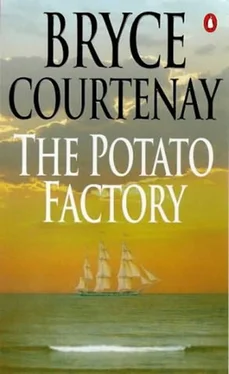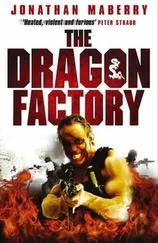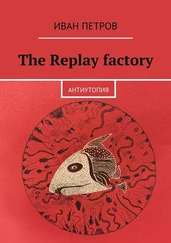Bryce Courtenay - The Potato Factory
Здесь есть возможность читать онлайн «Bryce Courtenay - The Potato Factory» весь текст электронной книги совершенно бесплатно (целиком полную версию без сокращений). В некоторых случаях можно слушать аудио, скачать через торрент в формате fb2 и присутствует краткое содержание. Жанр: Современная проза, на английском языке. Описание произведения, (предисловие) а так же отзывы посетителей доступны на портале библиотеки ЛибКат.
- Название:The Potato Factory
- Автор:
- Жанр:
- Год:неизвестен
- ISBN:нет данных
- Рейтинг книги:3 / 5. Голосов: 1
-
Избранное:Добавить в избранное
- Отзывы:
-
Ваша оценка:
- 60
- 1
- 2
- 3
- 4
- 5
The Potato Factory: краткое содержание, описание и аннотация
Предлагаем к чтению аннотацию, описание, краткое содержание или предисловие (зависит от того, что написал сам автор книги «The Potato Factory»). Если вы не нашли необходимую информацию о книге — напишите в комментариях, мы постараемся отыскать её.
The Potato Factory — читать онлайн бесплатно полную книгу (весь текст) целиком
Ниже представлен текст книги, разбитый по страницам. Система сохранения места последней прочитанной страницы, позволяет с удобством читать онлайн бесплатно книгу «The Potato Factory», без необходимости каждый раз заново искать на чём Вы остановились. Поставьте закладку, и сможете в любой момент перейти на страницу, на которой закончили чтение.
Интервал:
Закладка:
With his free hand the reporter reached down to his fob chain and then more frenetically patted the lower part of his waistcoat.
'This yers then, mister?' Sparrer asked. The hint of a smile played on his pinched little face as he held up a gold hunter by its chain. 'Worth a lot more than a gold sov, now, don't ya think?'
'How the devil!' Dickens expostulated.
'Gotta be careful who ya picks up when they's fallen down on the pavement, mister. Grab a boy by 'is collar and 'e's got both 'ands free, ain't 'e now?'
Charles Dickens grinned sheepishly as Sparrer returned his watch to him. 'A daffy and a sovereign it is then. I do hope it's a good story, Mr Artful Dodger.'
'Best ya ever 'eard, mister,' Sparrer Fart shot back as he dodged into the oncoming traffic in Newgate Street to cross to a tavern on the far side.
Meanwhile in the New Court of the Old Bailey, Mr Phillips addressed the judge on the matter of Sergeant George Smith's missing fingernail.
'Your Honour, I request that the witness box be searched for a fingernail belonging to the witness.'
There was much laughter from the gallery at this notion, for most of the public had not understood the meaning of Sparrer's shouted accusation.
Sir Reginald rose quickly to his feet. 'With the greatest respect, your honour, the defence is both confused and confusing?' He glared at Mr Phillips. 'My learned colleague had first requested that the witness accept a new name, that of "The Reamer" and then asks that Mr Smith thrust his forefinger in the air. A most curious request to say the least! But then, when he perceives it to be a perfectly normal finger with a perfectly normal fingernail upon it, he demands that we all go on our hands and knees and look for a missing and imaginary finger part!'
There was a roar of laughter from the court and this time the judge threatened to remove all from the public gallery if the misbehaviour continued. Then he looked impatiently at Mr Phillips.
'Is that not substantially correct, Mr Phillips? Or do you have some motive which is beyond us in this court? Already you try my patience to a most precipitous point.'
'Your honour, it will take but a moment. I crave your indulgence. What I hope to find is of the greatest significance to this case. It is my intention to show that the word of Senior Constable George Smith is not to be relied upon.'
The judge looked stern. 'I have already cautioned you against this sort of imputation and warn you that you will be charged before the bench with misconduct if you do not satisfactorily resolve the accusation you are making against Mr Smith. You may search the witness box with an officer of this court in attendance.'
Ikey's barrister leaned over and spoke quietly to his instructing solicitor who, accompanied by a constable, entered the witness box. It took only a moment for the police officer to find the torn part of a fingernail which had fallen to the floor at the feet of George Smith. The piece of nail was filed to a point and appeared to be almost an inch and a half long. He handed it to the solicitor, who then took it across to the clerk of the court.
'Your honour, I suggest that the portion of fingernail which I now submit as evidence can be shown to have been formerly attached to the forefinger of the witness. I have several witnesses, including my client, who are willing to testify that the offending forefinger, with nail attached, was used for the purposes of searching the back passage of prisoners for contraband. It was intended that this action of reaming would render grievous bodily harm to the victims of this odious search. It is for this reason that the witness has been christened "The Reamer"!'
'I object, your honour. This matter of nicknames has nothing whatsoever to do with the case at hand. I refer to my learned colleague's original question which, if I recall correctly, was how the notes were discovered on the person of the accused!'
'Your objection is sustained, Sir Reginald,' the judge said and turned to the jury. 'You will ignore the imputation made by Mr Phillips as to the usage of the fingernail, and reference to it will be struck from the record.' He looked at Ikey's barrister. 'You will restrict yourself to asking direct questions, Mr Phillips. I shall not warn you again!'
'Yes, thank you, your honour, you are most gracious,' Mr Phillips said, appearing not the least chastened by the judge's warning. 'Mr Smith, can you tell this court whether the man you searched, known as Ikey Solomon, is in this court?'
The senior constable nodded and pointed to Ikey. 'That be him, sir.'
'Thank you. And you conducted a thorough… er… body search upon this person?' There was a roar of laughter in the court and the judge banged his gavel again.
'It were the normal search, sir, for what we calls routine contraband.'
'Where did you find the two counterfeit notes? Can you tell me precisely their location, Mr Smith?'
'They were in the lining o' the coat, sir.'
'In the lining? In the lining of whose coat?'
'The accused, sir, he wore a coat on the night 'e were brought in.'
'An expensive coat? Sewn into the lining?'
'Yes, sir it were a good coat but no, not sewn, there were a tear in it. The notes were pushed down the tear into the lining, like.'
'Isn't that a little obvious, constable? Would you concede that a large tear which had not been repaired on an expensive coat was a rather too obvious place to hide the notes?'
'That's not for the likes o' me to say, sir. That be where them notes were found and I did not say it were a large tear, sir,' George Smith said tartly.
Mr Phillips wheeled around and pointed directly at George Smith. 'No, sir, with the greatest respect, I submit to you that the two five pound notes were planted!' Mr Phillips turned towards the jury. 'How very convenient to make a tear in his coat, the coat which the accused was forced to remove while he was undergoing a thorough body search! A tear into which, abracadabra, the two five pound notes suddenly appeared, politely stuffed within the lining of the coat to make the evidence your masters requested appear in the most convenient manner! Is this not a much more reasonable explanation of what happened, Mr Smith?'
'No sir, it is not! The notes be found just like I said.'
'Then you will demonstrate how you found these two notes please, Mr Smith.' Ikey's barrister turned to the clerk of the court. 'We have asked that the accused's coat be brought in evidence. Would you please identify it and hand it to the witness?'
The clerk of the court stood up and turned to the judge. 'Your honour, the coat in question was not taken in evidence from the prisoner at the time of his arrest.'
The judge looked astonished and then addressed George Smith. 'Mr Smith, did you not say that the counterfeit notes were found in the lining of the coat and that they had been so placed by means of a tear in the outer material?'
'Yes, your honour.'
'Am I to believe that the coat was then allowed to remain with the accused and was not confiscated as evidence?'
George Smith looked decidedly sheepish. 'We forgot, your honour, it were a cold night.' Then he pointed at Ikey in the dock. 'He were wearin' it when he made his escape.'
'Thank you, Mr Smith, you may step down,' Mr Phillips said.
In his summary of the evidence the judge pointed out that the absence of the coat and the subsequent denial of the accused that a tear had ever existed in it constituted 'reasonable doubt' as to whether the banknotes had been placed in the lining by the accused or by the actions of some other person or persons unknown. Furthermore, without the evidence of the two notes there appeared to be nothing which linked Ikey with the crime of forgery. The etched plate and printing press found in the basement premises proved nothing beyond the fact that Ikey was the landlord and the forger Abraham Van Esselyn his tenant. He noted that all the receipts for the printing press and subsequent forgery materials were in the name or pseudonym of Abraham Van Esselyn whom, he reminded the jury, had been previously tried and found guilty. Finally, there existed not a shred of evidence to show how Ikey might have procured the Treasury paper on which the forged notes were printed.
Читать дальшеИнтервал:
Закладка:
Похожие книги на «The Potato Factory»
Представляем Вашему вниманию похожие книги на «The Potato Factory» списком для выбора. Мы отобрали схожую по названию и смыслу литературу в надежде предоставить читателям больше вариантов отыскать новые, интересные, ещё непрочитанные произведения.
Обсуждение, отзывы о книге «The Potato Factory» и просто собственные мнения читателей. Оставьте ваши комментарии, напишите, что Вы думаете о произведении, его смысле или главных героях. Укажите что конкретно понравилось, а что нет, и почему Вы так считаете.












